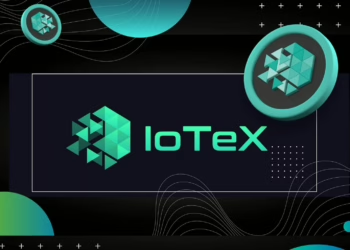BitRail is emerging as a key enabler in the evolving payments landscape as major global retailers increasingly explore launching their stablecoins to cut transaction costs, accelerate settlement speeds, and gain more control over their payment infrastructure.
In response to this shift, the fintech firm offers a turnkey, fully compliant infrastructure that empowers merchants and processors to issue branded stablecoins and digital wallets. This allows them to bypass traditional payment networks entirely. BitRail’s platform features white-label digital wallets pegged 1:1 to the U.S. dollar, with funding options available via ACH, credit cards, and, soon, Buy Now Pay Later (BNPL). Supporting its nationwide reach, the platform is backed by Money Transmitter Licenses in all U.S. states and Washington D.C.
BitRail offers turnkey stablecoins and branded digital wallets as major merchants signal shift toward owned payments.
— SQWARE (@sqwareterminal) June 26, 2025
According to CEO Jeff Siegel, two of the world’s largest merchants are already advancing toward stablecoin adoption due to benefits such as lower fees, enhanced security, and near-instant settlements.
“We give merchants of any size the same capability,”
Siegel said, noting that clients using BitRail can reduce transaction fees by up to 50%.
Further strengthening its offering, BitRail supports the issuance and management of stablecoins within a secure, closed-loop system. This approach reduces fraud, increases margins, and simplifies compliance. Additionally, the company is developing new features to enable approved users to fund wallets using cryptocurrencies—broadening its digital asset integration.
Designed specifically for merchants, marketplaces, and payment processors aiming to leave behind traditional credit card rails, BitRail’s platform manages both regulatory and technical challenges, allowing clients to focus on growth and innovation.
Meanwhile, the global push to regulate stablecoins is accelerating. At the World Economic Forum’s Summer Davos, IMF Deputy Managing Director Bo Li highlighted two major unresolved issues, particularly around how stablecoins should be classified, indicating regulatory clarity remains a pressing concern for the sector. Li further explained that if stablecoins are categorized as currency, governments would need to determine whether they fall under narrow money (M0) or broader money (M2) classifications.
If you want to read more news articles like this, visit DeFi Planet and follow us on Twitter, LinkedIn, Facebook, Instagram, and CoinMarketCap Community.
“Take control of your crypto portfolio with MARKETS PRO, DeFi Planet’s suite of analytics tools.”




















